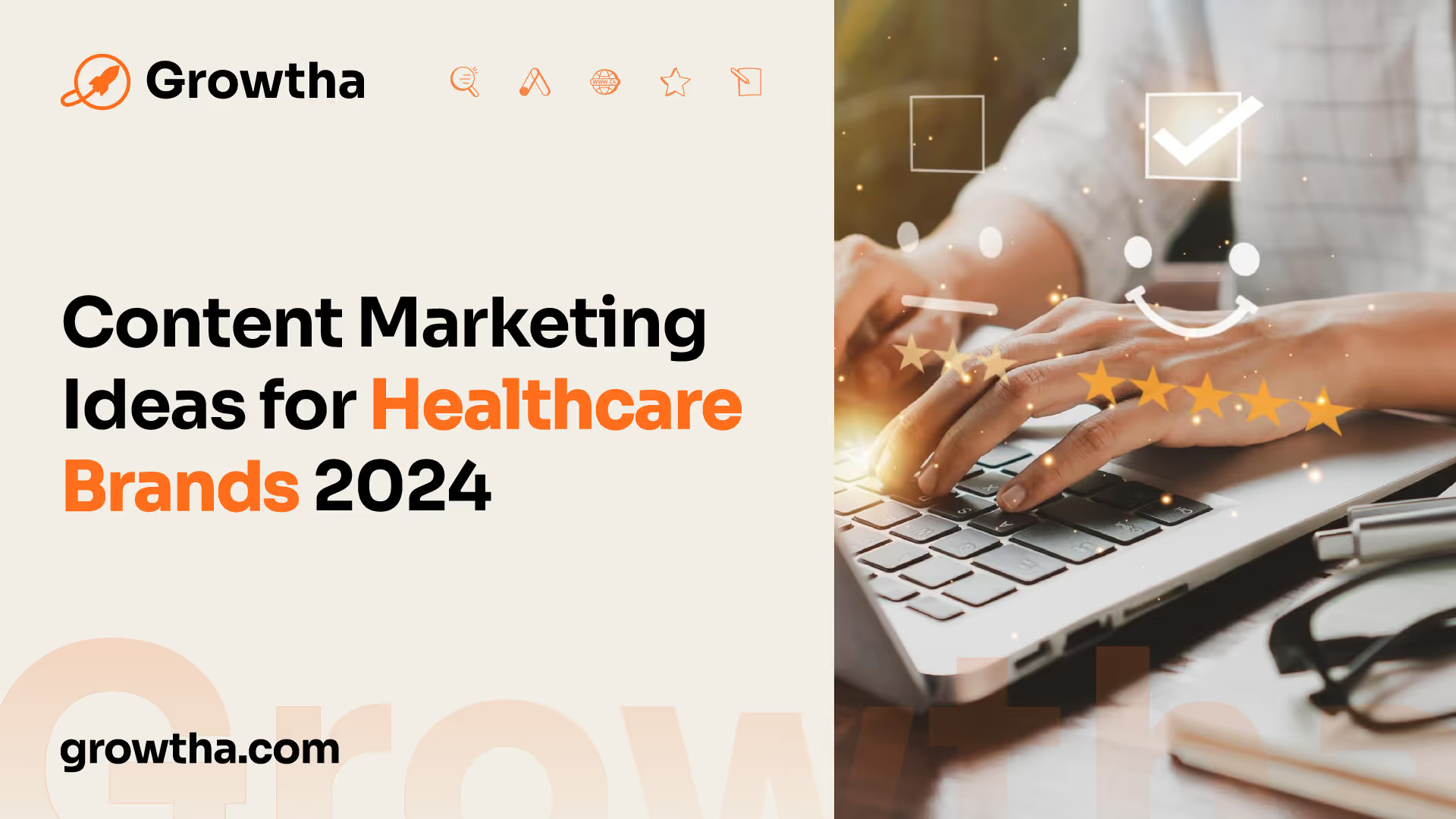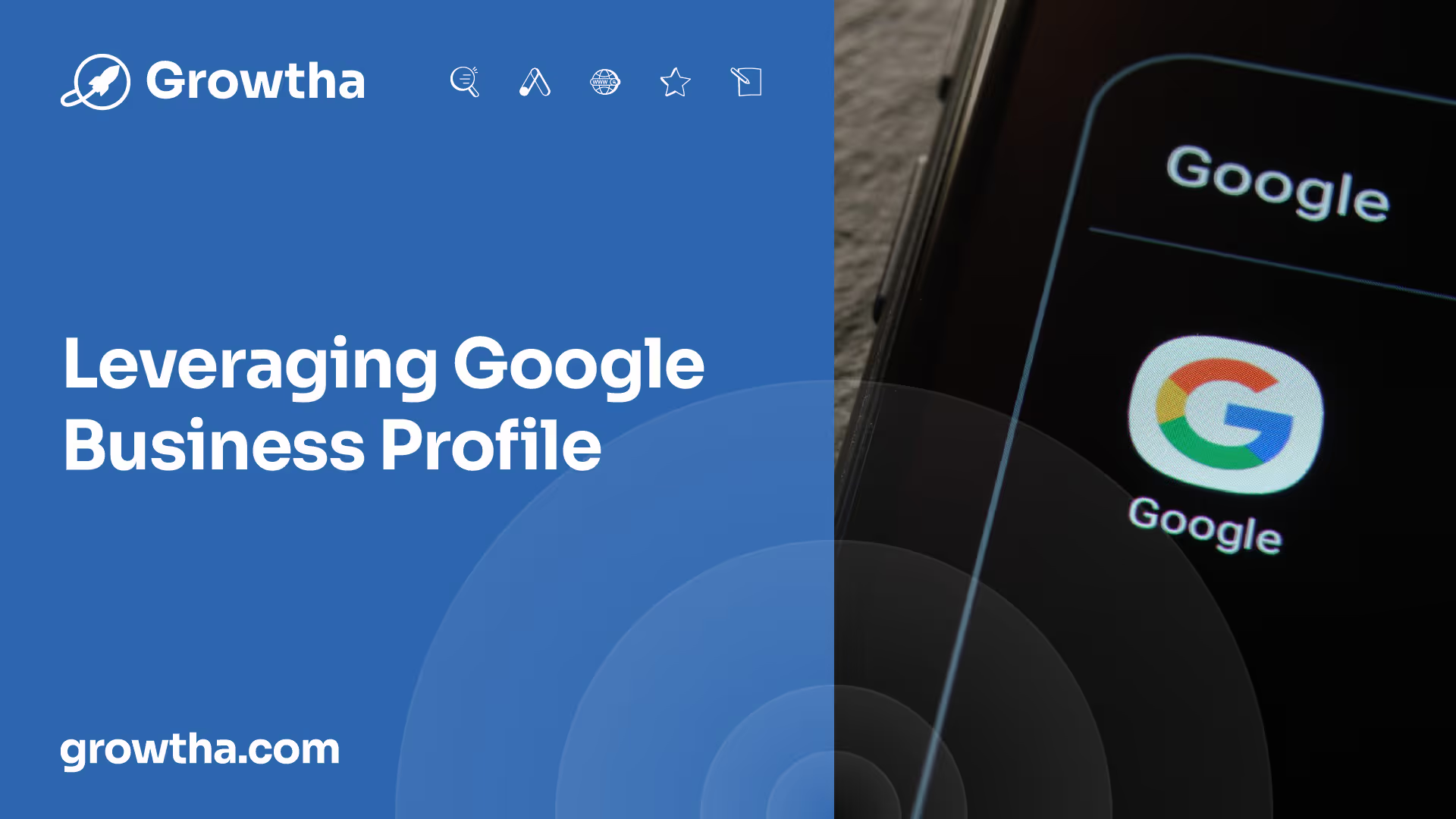Content Marketing Ideas for Healthcare Brands 2024
Two significant trends to watch out for are AI-powered analytics in healthcare marketing and the importance of responsive websites.


Content Marketing Ideas for Healthcare Brands 2024
Healthcare Marketing Trends 2024
As the healthcare industry continues to evolve, so does healthcare marketing. In 2024, several key trends are shaping the way healthcare brands approach their marketing strategies. Two significant trends to watch out for are AI-powered analytics in healthcare marketing and the importance of responsive websites.
AI-Powered Analytics in Healthcare Marketing
Healthcare marketers are increasingly turning to AI-powered analytics to gain insights into their target audience and deliver personalized marketing materials and communications. AI helps analyze patient histories and behaviors, enabling marketers to create more relevant, engaging, and informative marketing messages.
By utilizing AI, healthcare organizations can segment groups based on vital criteria, such as demographics, medical history, and preferences. This segmentation allows for the creation of targeted marketing campaigns that resonate with specific patient segments. AI-powered analytics also help healthcare marketers identify trends and patterns, which can inform future marketing strategies and improve overall patient engagement.
Importance of Responsive Websites
In the digital age, a responsive and well-designed website is crucial for healthcare organizations to enhance patient-provider communication and provide a seamless online experience. Websites should be mobile-friendly and optimized for different devices, ensuring that patients can easily navigate and access information regardless of the device they are using.
A responsive website should offer features that facilitate patient-provider communication, such as two-way chat, online appointment scheduling, and secure patient portals. These features enable patients to interact with healthcare providers conveniently and access their medical records securely. Additionally, websites should provide educational content in engaging formats like videos and animations to enhance patient education and awareness.
Ensuring a responsive website not only improves patient satisfaction but also contributes to a positive brand image and attracts potential patients. Healthcare organizations that prioritize responsive websites are better equipped to meet patients' expectations in the digital age and provide the necessary information and services.
By staying abreast of these healthcare marketing trends, healthcare brands can effectively reach their target audience, deliver personalized experiences, and foster meaningful patient-provider relationships. Embracing AI-powered analytics and investing in responsive websites are vital steps for healthcare organizations to thrive in the evolving landscape of healthcare marketing.
Personalization and Security
In the ever-evolving landscape of healthcare marketing, personalization and security are two key factors that can greatly impact the success of a healthcare brand. Let's explore the importance of HIPAA compliance in marketing and the benefits of multi-channel marketing.
HIPAA Compliance in Marketing
Healthcare organizations must ensure that all Protected Health Information (PHI) is handled according to HIPAA's Privacy Rules. This means that when it comes to marketing communications, healthcare marketers need to find HIPAA-compliant ways to personalize their messaging and engage with patients while maintaining the highest level of data security.
To achieve HIPAA compliance in marketing, organizations are implementing advanced encryption, security measures, and even exploring the use of blockchain technology for secure transmission of information. This allows healthcare marketers to personalize their communications without compromising patient privacy and confidentiality.
An important aspect of HIPAA compliance in marketing is the handling of patient data and ensuring its security throughout various marketing channels. Marketers need to conduct a thorough audit of their website's marketing tech stack and advertising tools to ensure compliance. Business Associate Agreements are being used to define the legal relationship between healthcare marketers and third-party tech tools and software, ensuring that all entities involved in handling patient data adhere to HIPAA regulations. Utilizing Customer Database Platforms (CDPs) can help anonymize PHI data, making it compliant with HIPAA regulations. It's also recommended to use HIPAA-compliant call tracking solutions, as well as analytics and reporting tools that prioritize data security.

Benefits of Multi-Channel Marketing
Multi-channel marketing is gaining increasing importance in the healthcare industry as it allows healthcare organizations to engage patients across various platforms. By implementing a multi-channel marketing strategy, healthcare brands can increase their visibility and exposure, reaching patients in the channels where they are most active.
One of the key benefits of multi-channel marketing is the ability to align and reinforce messaging with the stage of interest of the patient. By utilizing multiple channels, healthcare marketers can reach patients at different touchpoints along their healthcare journey, ensuring that the right information is delivered at the right time. This personalized approach enhances patient engagement and improves the overall patient experience.
Additionally, multi-channel marketing allows healthcare organizations to diversify their marketing efforts, reducing their reliance on any single channel. This helps to spread the reach of their message and ensures that they can connect with a wider audience.
By adopting a multi-channel marketing strategy, healthcare brands can effectively engage patients, personalize their messaging, and create a seamless experience across various platforms.
In conclusion, personalization and security play vital roles in healthcare marketing. Ensuring HIPAA compliance in marketing communications allows healthcare organizations to personalize their messaging while safeguarding patient privacy. Implementing multi-channel marketing strategies enables healthcare brands to engage patients effectively and deliver personalized messaging at various touchpoints, resulting in greater visibility and a better patient experience.
Local SEO Strategies
In the ever-evolving world of healthcare marketing, implementing effective local SEO strategies is crucial for healthcare brands to establish their online presence and connect with patients in specific geographic locations. By leveraging Google Business Profile and enhancing location-based SEO, healthcare organizations can increase visibility and engage with their local audience.

Leveraging Google Business Profile
A key component of local SEO for healthcare providers is leveraging a Google Business Profile. This profile allows healthcare brands to provide important contact information, such as phone numbers, addresses, and operating hours, directly on Google Maps [1].
By optimizing and regularly updating their Google Business Profile, healthcare providers can ensure that potential patients have easy access to accurate and up-to-date information. This, in turn, enhances their online visibility and helps drive traffic to their physical locations.
Enhancing Location-Based SEO
Healthcare organizations with multiple locations can further enhance their local SEO efforts by creating individual location pages and physician profile pages based on specialty. These pages can be optimized with relevant keywords, ensuring that they appear in local search queries, and helping patients find the specific services and providers they are looking for.
In addition to optimizing location-specific pages, reputation management and user-generated content play a significant role in local SEO for healthcare providers. Patient feedback, reviews, and ratings carried by Google Business Profiles and other online platforms have become increasingly influential in patients' decision-making process [3]. Healthcare organizations should actively manage their online reputation, gather new reviews, and respond to patient feedback to improve visibility and establish credibility in their local communities.
Healthcare brands also need to be mindful of HIPAA compliance when implementing personalized marketing strategies. Protected Health Information (PHI) should be handled according to HIPAA's Privacy Rules. Healthcare organizations are exploring HIPAA-compliant ways to personalize marketing communications, ensuring advanced encryption, security measures, and even considering the use of blockchain technology for secure information transmission [1].
By implementing effective local SEO strategies, healthcare brands can optimize their online presence, reach their local audience, and build trust and credibility within their communities. Leveraging tools like Google Business Profile and focusing on location-based SEO can significantly improve visibility, drive traffic, and enhance patient engagement. Additionally, prioritizing reputation management and ensuring HIPAA compliance are essential for successful healthcare marketing in the digital landscape of 2024.
Emerging Technologies
As the healthcare industry continues to evolve, emerging technologies play a pivotal role in shaping the future of healthcare marketing. In this section, we will explore two key technologies that are set to make a significant impact in 2024: generative AI applications and virtual healthcare assistants.
Generative AI Applications
Generative AI, as highlighted by Forbes, is one of the transformative technologies that will revolutionize healthcare marketing in the coming years. Generative AI involves the use of artificial intelligence algorithms to create new and original content based on existing data.
In the realm of healthcare marketing, generative AI applications can be utilized to develop personalized marketing materials and communications. By analyzing patient histories, behaviors, and preferences, AI-powered analytics can segment the target audience and create tailored marketing messages that are more relevant, engaging, and informative [1].
The ability of generative AI to generate personalized content at scale allows healthcare brands to connect with their target audience on a deeper level, resulting in increased engagement and improved patient experiences. By leveraging the power of generative AI applications, healthcare marketers can deliver more effective and targeted marketing campaigns.
Impact of Virtual Healthcare Assistants
Virtual healthcare assistants and chatbots are emerging technologies that are transforming the way healthcare professionals interact with patients. These AI-powered assistants are capable of providing treatment advice, diagnoses, medication information, and guiding patients with care-related questions.
In the context of healthcare marketing, virtual healthcare assistants can play a crucial role in enhancing patient engagement and providing personalized support throughout the patient journey. These assistants can interface with electronic health record (EHR) systems, assisting patients with appointment scheduling, reminders, and accessing medical information.
By integrating virtual healthcare assistants into their marketing strategies, healthcare brands can foster better patient communication, improve access to healthcare information, and enhance overall patient satisfaction. These assistants offer round-the-clock support, ensuring that patients receive the information and assistance they need, contributing to a more seamless and personalized healthcare experience.
As healthcare marketing embraces emerging technologies like generative AI applications and virtual healthcare assistants, brands can leverage these advancements to deliver targeted, personalized, and efficient marketing campaigns. By staying at the forefront of these technological trends, healthcare brands can connect with their audience in meaningful ways, ultimately driving engagement, improving patient experiences, and achieving their marketing goals.
Preventative Healthcare Focus
In 2024, the healthcare industry is placing a strong emphasis on preventative healthcare and proactive health management. This approach involves utilizing technology to promote early interventions, exercise, wellness, and immunizations to prevent health issues before they arise. By leveraging advancements such as AI, wearables, and other technological tools, healthcare brands can provide patients with long-term benefits and reduce healthcare costs.
Role of Technology in Proactive Health Management
Technology plays a pivotal role in proactive health management by enabling early warnings, interventions, and continuous monitoring. Through the use of AI, healthcare brands can analyze vast amounts of patient data to identify patterns, detect potential health risks, and provide personalized treatment plans. AI can also assist in training medical algorithms with synthetic data, leading to more accurate diagnoses and treatment recommendations.
Moreover, virtual healthcare assistants and chatbots are becoming increasingly prevalent in the healthcare industry. These AI-powered tools can provide treatment advice, aid in diagnoses, offer medication information, and guide patients with care-related questions. They can also interface with electronic health record systems, making it easier for patients to schedule appointments and receive reminders [4].
Benefits of Wearables and AI in Prevention
Wearables, such as fitness trackers and smartwatches, have gained popularity for their ability to monitor various health metrics. In the context of preventative healthcare, wearables allow individuals to track their physical activity, heart rate, sleep patterns, and other vital signs. By continuously monitoring these factors, wearables can provide early warnings for potential health issues and encourage individuals to take necessary steps to maintain their well-being.
Furthermore, the integration of AI with wearables enhances their capabilities. AI algorithms can analyze data from wearables, identify trends, and provide personalized insights and recommendations for improving health outcomes. This combination of wearables and AI empowers individuals to take an active role in their own health management, leading to better overall health and well-being.
By focusing on preventative healthcare and leveraging technology, healthcare brands can revolutionize the way individuals approach their health. The use of AI, wearables, and virtual healthcare assistants allows for early interventions, personalized treatment plans, and remote care delivery beyond consultations. This proactive approach not only improves patient outcomes but also optimizes the allocation of medical resources for more efficient healthcare delivery.
Content Marketing Strategies
Content marketing has become an essential tool for healthcare brands to connect, educate, and engage with their audience. By creating and sharing informative, engaging, and multimedia content, such as articles, videos, infographics, and podcasts, healthcare organizations can address the needs and interests of potential patients and establish themselves as trusted authorities in their respective fields.
Establishing Authority through Content
To establish subject matter authority, healthcare brands should focus on producing valuable, relevant, and high-quality content for their audience. By addressing various subtopics and queries related to healthcare, brands can demonstrate their expertise and build credibility. Conducting thorough keyword research and creating substantial volumes of top-tier content on specific topics can help brands become trusted sources of information within their industry [5].
It's important for healthcare brands to conduct traditional audience research before diving into content creation. Understanding the target audience is crucial for effective content marketing. Rushing into content creation without a clear understanding of the audience can lead to subpar results. By gaining insights into the preferences, interests, and challenges of the target audience, brands can tailor their content to meet their needs and establish a strong connection [5].
Success Rate of Healthcare Content Marketing
The success rate of content marketing in the healthcare industry is remarkably high. According to a survey, 99% of companies that implemented content marketing strategies reported positive results. A significant percentage of these companies reported moderate to very successful outcomes, highlighting the effectiveness of content marketing in driving patient engagement, building credibility, and connecting with the target audience [5].
By consistently producing valuable and relevant content, healthcare brands can capture search traffic as individuals increasingly seek health-related information online. Creating content that educates, informs, and addresses the concerns of potential patients helps healthcare brands establish themselves as go-to sources for reliable information. This, in turn, leads to increased trust, brand recognition, and long-lasting patient engagement [5].
Content marketing is a powerful strategy for healthcare brands to connect with their audience, establish authority, and drive meaningful engagement. By crafting high-quality, informative, and valuable content, healthcare organizations can make a lasting impact on their target audience, helping individuals make informed healthcare decisions and improving overall patient experiences.
References
[1]: https://www.marketing.com/blog/top-8-healthcare-marketing-trends-for-2024/
[2]: https://www.cardinaldigitalmarketing.com/healthcare-resources/blog/healthcare-marketing-trends-2024/
[3]: https://edkentmedia.com/top-healthcare-marketing-trends-to-watch-for-in-2024/
[4]: https://www.forbes.com/sites/bernardmarr/2023/10/03/the-10-biggest-trends-revolutionizing-healthcare-in-2024/
[5]: https://nogood.io/2023/10/03/healthcare-content-marketing/







